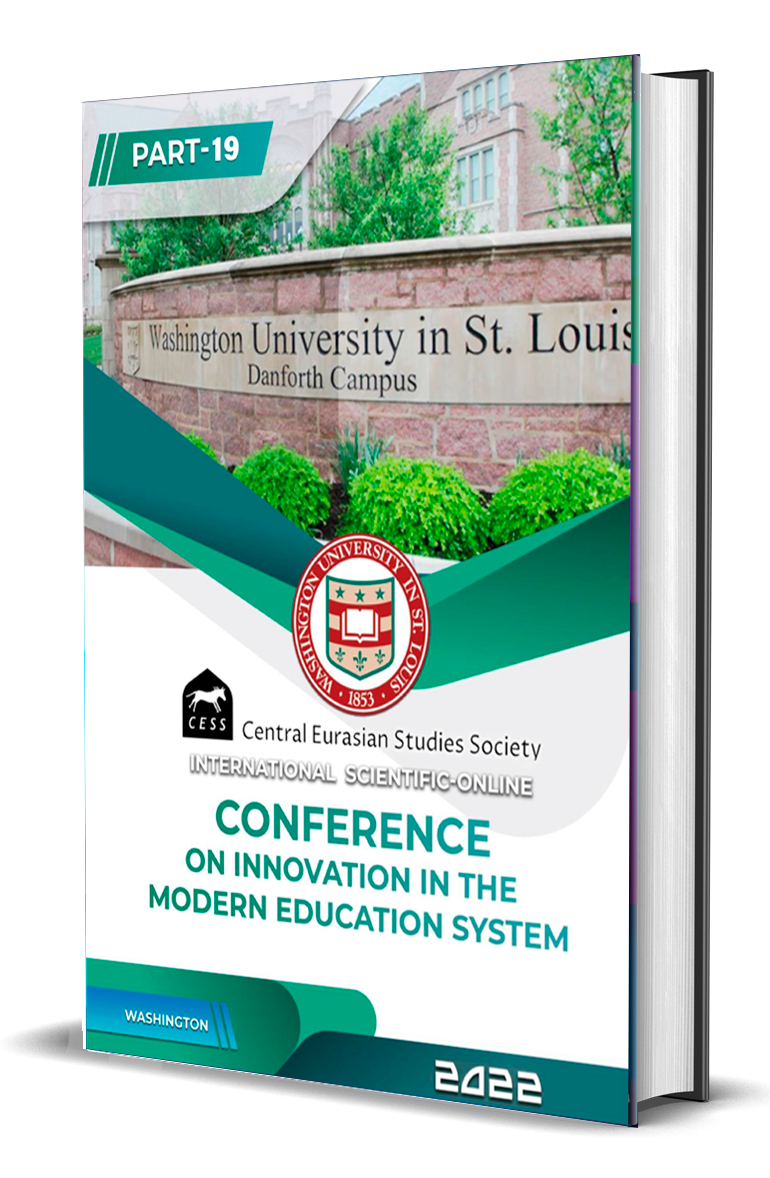O'SMIRLARNING IJODIY TAFAKKURINI RIVOJLANTIRISHDA OILANING ROLI
Keywords:
qobiliyatlar, ijodiy fikrlash, oila, fanlararo munosabatlar, ota-ona munosabati, o'smirlarAbstract
Maqolada ota-ona munosabatlari ko'rsatkichlarining o'spirinlarning ijodiy tafakkurining tarkibiy qismlari bilan o'zaro bog'liqligi aniqlandi va izohlandi. Ota-onalar bolaning ishlari va rejalari bilan Qiziqadigan, tashabbuskorlik va mustaqillikni rag'batlantiradigan, unga ishonadigan va uning kuchlariga ishonadigan oilalarda yuqori darajadagi ijodiy fikrlash rivojlanishi ko'rsatilgan. Shuningdek, oilada dushmanlik va nizolar bo'lmagan taqdirda ijodiy fikrlash tarkibiy qismlarining yuqori qiymatlariga erishish empirik ravishda aniqlandi. Shu bilan birga, o'smirlik davrida ota-onalar o'z hokimiyatiga bo'ysunishni talab qilmasligi, bolaning shubhalarini rag'batlantirishi va xatolarga yo'l qo'yishi muhimligi ta'kidlandi. Oila tarkibi o'spirinlarning ijodiy tafakkurini rivojlantirishga ta'sir qilishi isbotlangan: to'liq oilalarda "hamkorlik" ota - ona munosabatlari uslubidan foydalanganda ijodiy fikrlash ko'rsatkichlari yuqori, to'liq bo'lmagan oilalarda esa "qabul qilish/rad etish" va "nazorat". Umuman olganda, "ravonlik", "o'ziga xoslik", "rivojlanish" ko'rsatkichlari va ijodiy fikrlashning umumiy darajasi to'liq oilalardagi o'spirinlarda ko'proq rivojlangan. Xulosa. Natijalar shuni ko'rsatadiki, o'smirlar bilan o'zaro munosabatlar masalalarida ta'lim berishga qaratilgan ota-onalar bilan ishlarni tashkil qilish kerak.
Downloads
References
Kashapov M. M. psychology of creative thinking: textbook. Moscow: Limited Liability Company Scientific Publishing Center In-Fra-M, 2017. 436 p. DOI 10.12737 / 22371.
Yildiz S., Yildiz T. G. Investigation of the relationship between creative and scientific process skills of preschoolers [Electronic Resource] // Thinking Skills and Creativity. 2021. Vol. 39 (accessed: 01/15/2021); https://doi.org/10.1016/j.tsc.2021.100795
Yankovskaya D. M., Karwowski M. Family factors and the development of creative thinking [Electronic Resource] // Personality and Individual Differences. 2019. Vol. 142. Q. 202-206 (accessed: 01/15/2021); https://doi.org/10.1016/j.paid.2018.07.030
Gralevsky J., Yankovskaya D. M. Do parenting styles matter? Perceived dimensions of parenting Styles, Creative abilities and creative Self-beliefs in adolescents [Electronic Resource] // Thinking Skills and Creativity. 2020. Vol. 38. URL: https://www.sciencedi-rect.com/science/article/abs/pii/S1871187120301838 (accessed: 04/12/2021); https://doi . org/10.1016/j.tsc.2020.100709
Barth V. M., Hokanson B., Sahin I., Abdelsamea M. A. An investigation of the Gender Differences in Creative thinking Abilities Among 8th and 11th Grade Students [Electronic Resource] // Thinking Skills and Creativity. 2015. Vol. 17. Q. 17-24. Uri: http://hdl.handle . net/20.500.12416/3726 (accessed: 03/22/2021); https://doi.org/10.1016/j.tsc.2015.03.003
Glebova M. V. influence of environmental factors on the development of intelligence and creative abilities / / International Journal of Experimental Education. 2016. No. 4-2. pp. 220-223.
Zubova M. O., Surkova E. G. interrelation of the level and features of creativity in assessing the educational practice of parents in adolescents // scientific works of the Moscow University for the Humanities, 2014. No. 11. pp. 55-59.
Livshits B. R. the development of creativity of teenagers in a family studio: author. Dis. - how about this? Cand. - How about this? ped. - How about this? disciplines: 13.00.01. Voronezh, 2003. 24 seconds
Borgoyakova I. G. the role of the family in the development of creativity in children / / pedagogy of love: materials of the interregional scientific and practical conference "x Volkov ethnopedagogical readings", Gorno-Altaysk, April 28-30, 2016 Gorno-Altaysk: Rio Gagu, 2016. 2016. pp. 61-63.





